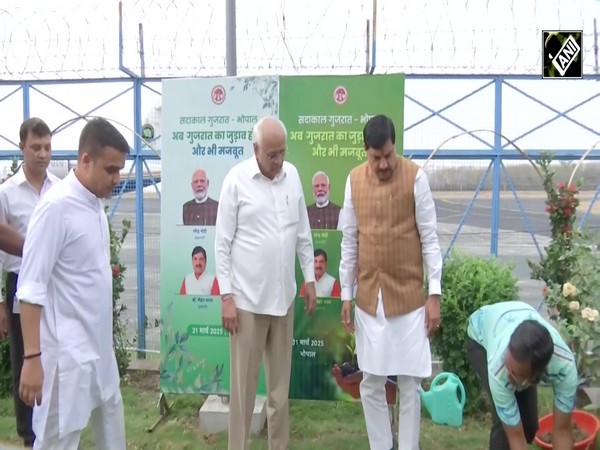If IT Rules 2021 aren't implemented, law enforcement agencies will face difficulty in tracing origin of fake messages, Centre tells Delhi HC
Oct 22, 2021

New Delhi [India], October 22 : The Centre told the Delhi High Court on Friday that if the IT Rules 2021 are not implemented, the law enforcement agencies will face difficulty in tracing the origin of fake messages and such messages will percolate in other platforms thereby disturbing peace and harmony in society leading to public order issues.
Justifying its decision, the Centre told the Court that the IT Rules 2021 have been enacted to help the law enforcement agencies identify the first originator of the information to prevent offences.
In an affidavit filed by the Ministry of Electronics and Information Technology, the government opposed the Whatsapp-Facebook plea challenging newly amended rules and urged the Delhi High Court to dismiss it questioning its maintainability.
Centre submitted that WhatsApp is a foreign commercial entity; it does not have any place of business in India and is engaged in the business of propagating information created by its platform users.
The Centre further added that WhatsApp's plea challenging the Constitutionality of any Indian law is hence not maintainable.
"The constitutionality of a provision of law cannot be challenged by a foreign commercial entity on the ground of it being violative of Article 19 rights as the said rights are only available to citizens and the law permits derivative action in cases of companies but the same can only be brought by an Indian citizen who is also a shareholder of the company and is limited to Article 19 (1) (g) rights," the central government said.
"The present petition where no derivative rights have been deemed by any Indian citizen is thus not maintainable," the government said.
Centre told the Delhi High Court there is immeasurable COVID-related misinformation being spread on social media platforms causing panic and even death.
"Messages that harm individuals and the community will continue to get transmitted in the platform, some of them causing harassment of women or children leading even to death and suicide," Centre submitted.
"Personal defamatory messages including videos of rape or morphed photographs of women and young children are commonly circulated in groups. In all such cases, hundreds of affected victims seek justice and the perpetrator of the crime has to be traced and punished. Hence, there are thousands of individuals who would be harmed by any delay in the implementation of this Rule," the Centre told the Delhi High Court.
The government prayed to uphold the constitutional validity of rule 4(2) of the IT Rules 2021 and dismiss the writ petitions challenging recently amended IT rules as not maintainable.
The affidavit was filed by the government in response to WhatsApp and Facebook pleas challenging IT Rules, which would require messaging services to "trace" the origin of particular messages sent on the service.
WhatsApp has earlier moved the Delhi High Court challenging the Centre Government's recently imposed IT Rules that would require messaging services to "trace" the origin of particular messages sent on the service.
WhatsApp through its statement had said "Requiring messaging apps to 'trace' chats is the equivalent of asking us to keep a fingerprint of every single message sent on WhatsApp, which would break end-to-end encryption and fundamentally undermine people's right to privacy."
WhatsApp spokesperson said, "We have consistently joined civil society and experts around the world in opposing requirements that would violate the privacy of our users. In the meantime, we will also continue to engage with the Government of India on practical solutions aimed at keeping people safe, including responding to valid legal requests for the information available to us."
On February 25, the Centre framed the Information Technology (Intermediary Guidelines and Digital Media Ethics Code) Rules 2021, in the exercise of powers under section 87 (2) of the Information Technology Act, 2000 and in supersession of the earlier Information Technology (Intermediary Guidelines) Rules 2011. The new guidelines issued by the government of India mandated a grievance redressal system for over the top (OTT) and digital portals in the country.


















